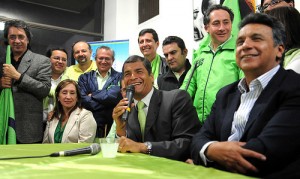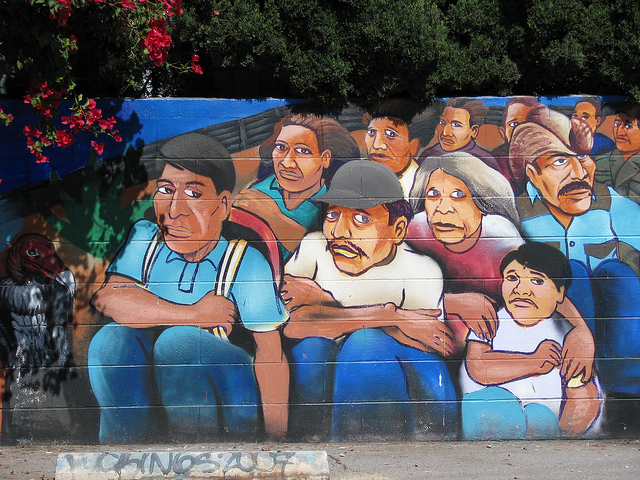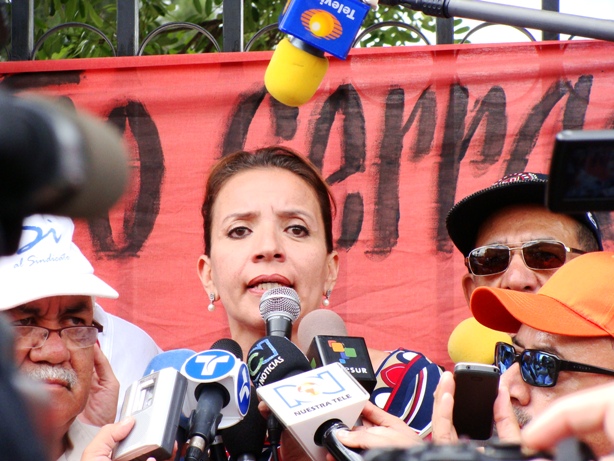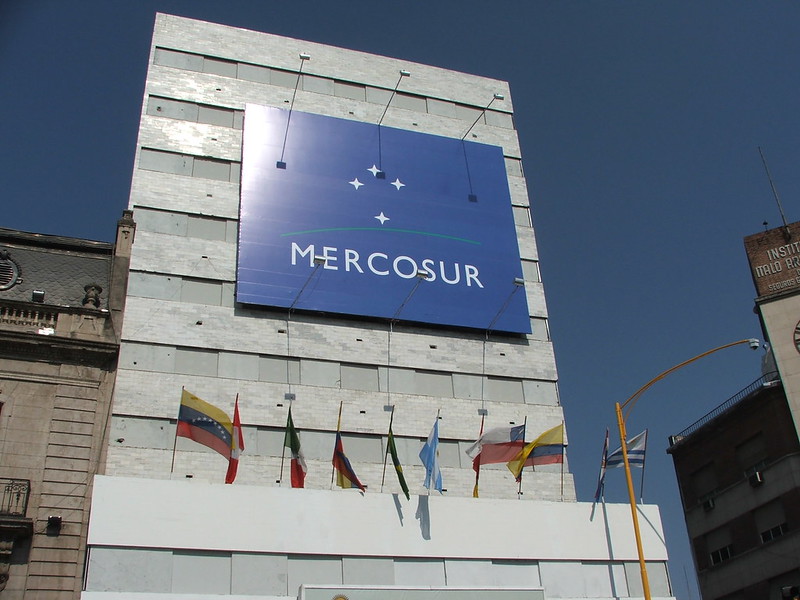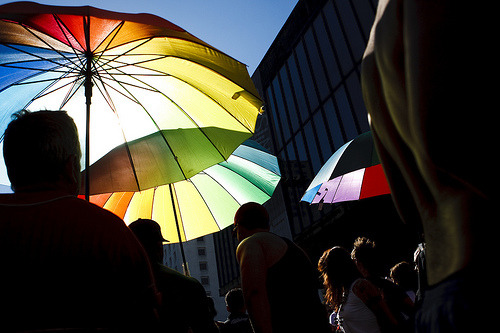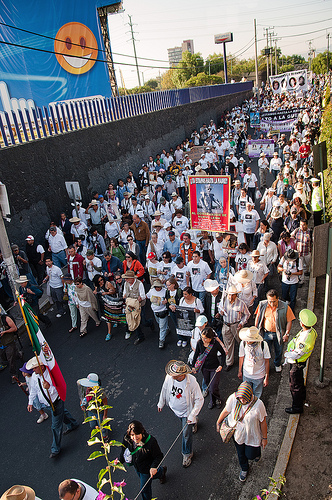
Ecuador, Latin America: Week in Review
Ecuador’s Correa Wins Referendum; Critics Worry About Consolidation Of Power
May 9, 2011 By Staff
Today in Latin America
Top Story — President Rafael Correa of Ecuador claimed victory in a referendum on a number of government and social reforms Saturday, paving the way for what critics say is an attempt to grab hold of more power.
An early count showed that Ecuadorians backed Correa on all ten of the referendum’s questions, which included everything from a ban on bullfighting to media and judicial reforms. Analysts claim that the victory will be a huge boost for Ecuador’s president.
“Today, we made an important step toward peace, democracy and a new motherland,” Correa said as the first results came in. “[The opposition has] been saying it’s totalitarian… [a word] used for a state in which things are done by force. We’re doing this democratically.”
Ecuadorians voted on a wide variety of somewhat unrelated issues in the referendum, including restricting media ownership, outlawing casino gambling, and prohibiting the killing animals for entertainment.
The restriction of media ownership and the proposed changes to Ecuador’s judiciary have drawn criticism from Correa’s opponents and outsiders alike.
Correa’s relationship with the media had already drawn international attention. Last month, the Inter-American Commission on Human Rights (IACHR) issued a statement condemning Correa for suing the newspaper El Universo for slander and asking for a $50 million fine along with three years in jail as punishments. The newspaper used the word “dictator” several times to describe Correa in a March column.
Critics of the judiciary reforms argue Correa gains too much influence in the appointment of judges because the executive branch would now have a stronger voice in selecting members of the temporary and permanent councils.
“If the question of restructuring the judicial system is approved, the only chance the opposition will have is to set aside their differences and appeal to the masses in a unified front—much like Correa did when coming to power in 2006 and as he continues to do now,” Edward Remache wrote in Americas Quarterly.
Just Published at the Latin America News Dispatch
- With 10 journalists murdered since 2008, Honduras is one of the most dangerous countries in the world to report. Andrew O’Reilly explains why violence there is soaring in “Who’s Killing the Journalists of Honduras?”
Headlines from the Western Hemisphere
North America
- Hundreds of Mexicans marched Sunday toward Mexico City’s main plaza to protest the high levels of drug violence in the country.
- Rescue crews in Sabinas, Mexico recovered all of the 14 bodies from a coal mine hit by a gas explosion early last week.
- Mexican federal police captured an alleged drug gang leader José Zarco Cárdenas Friday in the capital, Mexico City.
- Lady Gaga recently criticized Arizona’s controversial immigration law during a press conference in Mexico City.
Caribbean
- A Cuban dissident died early Sunday after being detained by police three days earlier, with a fellow activist blaming police for his death.
- Congresswoman Frederica Wilson visited Haiti on Saturday as a debate over dual citizenship got underway.
- Puerto Rico’s governor says remote towns across the Caribbean island’s central mountain range will receive $637 million worth of upgrades to water systems, schools, hospitals, farms and athletic fields.
Central America
- Three people died after consuming tainted liquor in León, a city in western Nicaragua, officials said.
- Police seized a U.S.-registered plane that was carrying more than $1 million and arrested seven suspects, Panamanian officials said.
Andes
- Authorities at a Venezuelan prison have found the bodies of eight inmates killed in what officials say is a conflict between rival gangs fighting for control of their cellblocks.
- The International Monetary Fund’s executive board agreed on Friday to extend a $6.22 billion credit line to Colombia, although Colombian officials do not intend to use it.
- A total of 354 couples got married at once at a coliseum in La Paz, Bolivia, with President Evo Morales playing the role of best man, officials said.
- Some two million people in Bolivia face the risk of a magnitude 8.9 megaquake, 125 times stronger than the previously calculated potential maximum, according a study published Sunday.
Southern Cone
- Buenos Aires Mayor Mauricio Macri announced that he would not run against President Cristina Fernández de Kirchner in next year’s presidential elections.
- Brazilian police confirmed that they had arrested sixteen suspected members of a Serbian drug gang last week, further demonstrating that the South American country is being used as a drug corridor for foreign cartels.
- Inter American Press Association delegates in Argentina announced Thursday that they were concerned about increased government control of the media as the country considers a media reform.
Image: Presidencia de la República del Ecuador @ Flickr.
